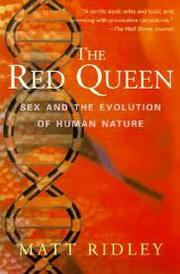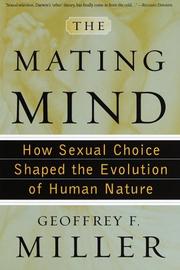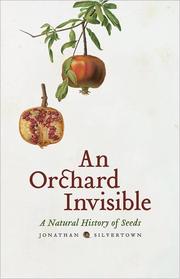The Red Queen: Sex and the Evolution of Human Nature by Matt Ridley - ISBN 0060556579 - Perennial 2003 (first published in Great Britain in 1993 by Penguin Books)
note that this was finished much earlier but without recall, recall starts a month before the current date to already start with very spaced recalls
Motivation
Having read Geoffrey Miller's TheMatingMind and thinking The Red Queen was either a foundation of its main hypothesis or an alternative view.
Reading
- 1 Human Nature
- "This book is an inquiry into the nature of that human nature: Its theme is that it is impossible to understand human nature without understanding how it evolved, and it is impossible to understand how it evolved without understanding how human sexuality evolved. For the central theme of our evolution has been sexual." (p4)
- "Everything can be inherited except sterility." (p5)
- "I am going to argue that there are very few features of the human psyche and nature that can be understood without reference to reproduction" (p6)
- brief reharsal of history of the evolution concept, Lamarck, Darwin, Weismann
- "We now know that Lamarckism cannot work because bodies are built from cakelike recipes, not architectural blueprints, and it is simply impossible to feed information back into the recipe by changing the cake" (p8)
- opening with Dawkins
- "even the emancipation from evolution that we so fondly imagine we have achieved must itself have evolved because it suited the replication of genes." (p9)
- fondly and speculative indeed (sic)
- "Throughout this book I will assume that the greater the degree of complexity there is in a behavior pattern, genetic mechanism, or psychological attitude, the more it implies a design for a function." (p15-16)
- "Every living creature is a product of its past. When a neo-Darwinian asks, "Why? " he is really asking, "How did this come about? " He is a historian." (p17)
- "One of the peculiar features of history is that time always erodes advantage: Every invention sooner or later leads to a counterinvention. Every success contains the seeds of its own overthrow. Every hegemony comes to an end. Evolutionary history is no different." (p17)
- "This concept, that all progress is relative, has come to be known in biology by the name of the Red Queen, after a chess piece that Alice meets in Through the Looking-Glass, who perpetually runs without getting very far because the landscape moves with her." (p18)
- "Every creature on earth is in a Red Queen chess tournament with its parasites (or hosts), its predators (or prey), and, above all, with its mate." (p19)
- "anything that increases reproductive success will spread at the expense of anything that does not-even if it threatens survival." (p20)
- "this book will end with the astonishing theory that the human intellect itself is a product of sexual rather than natural selection, for most evolutionary anthropologists now believe that big brains contributed to' reproductive success either by enabling men to outwit and outscheme other men (and women to outwit and outscheme other women) or because big brains were originally used to court and seduce members of the other sex." (p21)
- so... what did Mitter's book The Mating Mind published 7 years later, 2000, added? details on Runway Processes, better formalism and data from simulation, ..?
- 2 The Enigma
- "Evolution's immediate popularity (and it was popular) owed much to the fact that it was misunderstood as a theory of steady progress from amoeba to man, a ladder of self-improvement." (p27)
- "evolution is a treadmill, not a ladder" (p27)
- "recombination and outcrossing are the essential procedures of sex. Everything else about it -gender, mate choice, incest avoidance, polygamy, love, jealousy- are ways of doing outcrossing and recombination more effectively or carefully." (p30)
- "Evolving is not a goal but a means to solving a problem." (p31)
- "Sexual species shared their newly invented genes among all individuals; asexual ones did not. So sexual species were like groups of inventors pooling their resources." (p32)
- "all biologists agreed that no creature could ever evolve the ability to help its species at the expense of itself. Only when the two interests coincided would it act selflessly." (p36)
- "The most obvious reason to borrow genes is to benefit from the ingenuity of others as well as yourself. Sex brings together mutations, constantly rearranging genes into new combinations until fortuitous synergy results." (p46)
- "if sex is good at throwing together good combinations of genes, it will be even better at breaking them up." (p46)
- "The cost of making proofreading mechanisms perfect gets rapidly higher as you get nearer to perfection; in other words, it is like the law of diminishing returns. Allowing some mistakes through but having sex to purge them out may be cheaper." (p50)
- 3 The Power of Parasites
- "Lottery models predict that sex should be most common where in fact it is rarest -among highly fecund, small creatures in changeable environments. On the contrary, here sex is the exception; but in big, long-lived,: slow-breeding creatures in stable environments sex is the rule" (p59)
- "[Leigh Van Valen] discovery was that the probability a family of animals would become extinct does not depend on how long that family has already existed. In other words, species do not get better at surviving (nor do they grow feeble with age, as individuals do). Their chances of extinction are random." (p64)
- confirming the repeated coelacanth example?
- "Survival is a zero-sum game. Success only makes one species a more tempting target for a rival species." (p64)
- the famous quote from Lewis Carroll's Alice, 1871
- "Well, in our country," said Alice, still panting a little, "you'd generally get to somewhere else if you ran very fast for a long time as we've been doing."
- "A slow sort of country!" said the Queen."Now, here, you see, it takes all the running you can do to keep in the same place: If you want to get to somewhere else, you must run at least twice as fast as that!" (p64)
- "things that kill animals or prevent them from reproducing are only rarely physical factors. Far more often other creatures are involved - parasites, predators, and competitors." (p65)
- "Parasites and their hosts are locked in a close evolutionary embrace." (p66)
- "Arms race analogies are flawed, though. In a real arms race, an old weapon rarely regains its advantage. The day of the longbow will not come again. In the contest between a parasite and its host, it is the old weapons, against which the antagonist has forgotten how to defend, that may well be the most effective." (p71)
- "The longer your generation time, the more genetic mixing you need to combat your parasites." (p71)
- "Sexual species can call on a sort of library of locks that is unavailable to asexual species. This library is known by two long words that mean roughly the same thing: heterozygosity and polymorphism" (p72)
- is there a formal representation of evolution and the different mechanisms involved? if possible in a functional language or at least in a diagram form, an equivalent of UML?
- somehow, computer simulations of evolution like Tierra and also research in optimization using evolutionary algorithms do provide this type of representations
- and... compare formalization of the evolutionary process with the formalization of the creative process, cf Seedea:Research/Experiments

- "The immune system is a fairly recent invention in geological terms. It started in the reptiles perhaps 300 million years ago." (p74)
- "according to this theory [keep mutating so that each generation has different antigen], the AIDS virus evolves until it finds a chink in the body 's immune armor" (p75)
- warning, this note orignially dates back to 1993, so despite revision from later edition one should check active related research
- Hamilton's simulation (p76-79) with its "cubic" genetic space
- "Women add sperm to their eggs because if they did not, the resulting babies would be identically vulnerable to the first parasite that picked their genetic locks." (p86)
- chapter overall describing the "engine" of parasite against their host, creating functional innovations requiring always increasing amount of "creativity" (largest pool of solutions) including the immune system and, potentially sex of course
- 4 Genetic Mutiny and Gender
- opening the chapter with the tragedy of the commons (p91)
- "a one-way ticket to riches for the individual and a one-way ticket to poverty for the village. Individually rational behavior leads to a collectively irrational outcome. The free-rider wins at the expense of the good citizen." (p91)
- "Even in a more complicated organism such as an amoeba, formed by an agglomeration of ancestral bacteria sometime in the distant past, there is little difference between the interests of the team and the individual members." (p96)
- example of genetic parasite by a scale insect
- "the parasitic sperm cells eat out its gonads and replace them with themselves." (p97)
- "A son is a high-risk, high-reward reproductive option compared with a daughter:" (p116)
- discussion on the potential bias regarding sex selection, including social preferences and, mostly unsucessful, solutions tried in different cultures
- "If gender selection were cheap, a fifty-fifty sex ratio would be imposed by parliaments of people as surely as equitable meiosis was imposed by the parliament of the genes." (p128)
- 5 The Peacock's Tale
- "theory of sexual selection, an intricate and surprising collection of insights about the evolution of seduction in animals, which is the subject of this chapter." (p132)
- "The goal for every female animal is to find a mate with sufficient genetic quality to make a good husband, a good father, or a good sire. The goal for every male animal is often to find as many wives as possible and sometimes to find good mothers and dams, only rarely to find good wives." (p132-133)
- "males invest less and seek quantity of mates, while females invest more and seek quality of mates" (p133)
- to send to Emilie as we had a brief discussion on that topic years ago
- "This chapter is about a kind of Red Queen contest, one that resulted in the invention of beauty" (p133)
- referring directly to the original book by Darwin The Descent of Man and Selection in Relation to Sex (p133)
- see also my analysis on beauty and it's relation to information in Seedea:Utopiahanalysis/Utopiahanalysis

- "Darwin got the idea in the first place; he knew that the gaudiest plumes of male birds were used in courting females and not in other activities. When two peacocks fight or when one runs away from a predator, the tail is kept carefully folded away." (p136)
- "Definitive evidence that the female preference itself is heritable has so far been hard to come by" (p137)
- see chapter 3 The Runaway Brain of TheMatingMind
- page 72 "the sexual preference [...] can genetically piggyback on the very trait that it prefers. This gives the runaway process its positive-feedback power, its evolutionary momentum." which interestingly reference back to the last chapter of this book
- "The more costly the handicap, the better it was as a signal of his genetic quality;" (p148)
- "handicaps might (perhaps must) not only affect survival and reflect quality but also do so in a graduated way;" (p149)
- "Making something symmetrical is not easy. If things go wrong, the chances are it will come out asymmetrical" (p152)
- see also section Attraction to specific physical traits: symmetry of chapter FECN#Chapter77 The evolutionary cognitive neuropsychology of face preferences]] in my notes on Foundations in Evolutionary Cognitive Neuroscience
- there is also the opposite argument in design (thus eventually in DNA) that generative design (following a code that unfold itself) use symmetry precisely because it uses less information
- "The evolutionary pressure on a female -assuming she benefits from choosing the best male- is to invent resistance to all but the most charming displays" (p161)
- "Each species chooses to exploit the senses that its females are best at detecting. This is, in a sense, to return to Darwin' s original idea: that females have aesthetic senses, for whatever reason, and that those senses shape male ornaments" (p162)
- 6 Polygamy and the Nature of Men
- "Life is a Sisyphean race, run ever faster toward a finish line that is merely the start of the next race." (p174)
- "There is no nature that exists devoid of nurture; there is no nurture that develops without nature." (p175)
- "perhaps it is foolish even to talk of humans having a mating system at all: They do what they want, adapting their behavior to the prevailing opportunity.'" (p178)
- after a brief warning regarding "natural" causes vs moral or what is usually considered "right" or "wrong" the author concludes "Evolution does not lead to Utopia." (p181)
- "Game theory is different from other forms of theorizing because it recognizes that the outcome of a transaction often depends on what other people are doing." (p184)
- first mention of the game theory framework despite repetitive references to work in economy, computer simulation and message signaling
- "To determine our mating system we need to know our natural habitat and our past" (p188)
- "this combination of time and place as the <<environment of evolutionary adaptedness>>, or EEA" (p191)
- "Farming opened the way for one man to grow much more powerful than his peers by accumulating a surplus of food, whether grain or domestic animals, with which to buy the labor of other men." (p194)
- "Brothers tend to help one another because they are related; what's good for your brother's genes is good for yours since you share half your genes with him: But there is another way to ensure that altruism pays: reciprocity. If an animal wants help from another, he could promise to return the favor in the future." (p196)
- "Laura Betzig has examined 104 politically autonomous societies and found that <<in almost every case, power predicts the size of a man's harem.>>" (p199)
- "one thing to find that powerful emperors were polygamous but quite another to discover that they each adopted similar measures to enhance their reproductive success within the harem: wet nursing, fertility monitoring, claustration of the concubines, and so on. These are not the measures of men interested in sexual excess. They are the measures of men interested in producing many children." (p199-200)
- "This is presumably the reason that the early Church became so obsessed with matters of sex. It recognized sexual competition to be one of the principal causes of murder and mayhem." (p202)
- 7 Monogamy and the Nature of Women
- "It is our usual monogamy, not our occasional polygamy, that sets us apart from other mammals, including apes." (p212)
- "adultery and its disapproval are both <<natural>>" (p219)
- "In short, the reason adultery is so common in colonial birds is that it enables a male bird to have more young and enables a female bird to have better young" (p224)
- "The typical woman's pattern of infidelity and orgasm is exactly what you would expect to find if she were unconsciously trying to get pregnant from a lover while not leaving a husband" (p226)
- "[Kim] Hill thinks the most important motive is that Ache women are constantly preparing for the possibility that they will be deserted by their husbands. They are building up alternative relationships and are more likely to be unfaithful if the marriage is going badly. That is, of course, a double-edged sword: The marriage could break up because the affair is discovered." (p228)
- "Polygamy is rare in hunter-gatherer societies, but adultery is common wherever it has been looked for." (p229)
- "Jealousy is a <<human universal>>, and no culture lacks it:" (p235)
- "Psychologists have found that couples who lack moments of jealousy are less likely to stay together than jealous ones" (p237)
- "Cuckoldry is an asymmetrical fate. A woman loses no genetic investment if her husband is unfaithful, but a man risks unwittingly raising a bastard" (p237)
- "[Nancy Wilmsen] Thornhill concludes that these rules had nothing to do with incest but were all about rulers trying to prevent wealth concentration by families other than their own; they usually excepted themselves from such laws:" (p243)
- "the claim of evolutionists is not that these measures of success are today the tickets to reproductive success but that they once were" (p243)
- "Wealth and power are means to women; women are means to genetic eternity." (p244)
- 8 Sexing the Mind
- "There are three reasons to expect evolution to have produced different mentalities in men and women." (p249)
- "men and women are mammals, and all mammals show sexual differences in behavior
- men and women are apes, and in all apes there are great rewards for males that show aggression toward other males, for males that seek mating opportunities, and for females that pay close attention to their babies
- men and women are human beings, and human beings are mammals with one highly unusual characteristic: a sexual division of labor." (p249-250)
- "far from being an ape with fewer than usual sex differences, the human being may prove to be an ape with more than usual sex differences." (p250)
- "This phenomenon -that people specialize in what they are good at and so create conditions that suit their genes- is known as the Baldwin effect" (p252)
- "Testosterone masculinizes the body; without it, the body remains female, whatever its genes. It also masculinizes the brain" (p254)
- "The practice of going out to work in an office or a factory is foreign and novel to the psychology of a savanna-dwelling ape. It is just as foreign to a man as to a woman." (p262)
- "High-earning women value the earning capacity of their husbands more, not less, than low-earning women. Even a survey of fifteen powerful leaders of the feminist movement revealed that they wanted still more powerful men." (p268)
- "People lower their expectations according to their age, looks, and wealth." (p269)
- "Just as it is foolish to deny the differences between the sexes in the face of the evidence presented here, so it is foolish to exaggerate them." (p276)
- "People seem to forget easily that the word is is different from the word should. If we choose to redress the sexual differences between the minds of men and women through policy, we are going against nature, but no more than when we outlaw murder." (p276)
- 9 The Uses of Beauty
- using the principle Konrad Lorenz's imprint to explain why incest happens rarely, discarding Freud's work (p285)
- "This concept of the critical period is presumably what lies behind the Westermarck incest-avoiding instinct" (p286)
- "Thinness has become what fatness was: a sign of statu" (p289)
- "<<The face is the most information-dense part of the body>> is how Don Symons put it" (p296)
- "All that the Fisher effect requires is for men to show a tendency to prefer the average face, and runaway selection will take over." (p297)
- "fashion has always been, until recently, a matter of class emulation" (p300)
- "modern women possess a mental mechanism, evolved during the Pleistocene period, that enables them to read what correlates to status among men and find such clues desirable." (p300)
- "Fashion is change and obsolescence imposed on a pattern of tyrannical conformity. Fashion is about status, and yet the sex that is obsessed with fashion is trying to impress the sex that cares least about status" (p304)
- "The depressing part of Darwin's insight [If all our women were to become as beautiful as the Venus de Medici, we should for a time be charmed; but we should soon wish for variety; and as soon as we had obtained variety, we should wish to see certain characters in our women a little exaggerated beyond the then existing common standard.] is that it shows how beauty cannot exist without ugliness" (p304)
- "Bruce Ellis showed how we manage this <<assortative mating>> pattern" (p305)
- very interesting experiment, yet the instruction "to pair up with the highest number they could find" automatically lead to this predictable result thus wondering where is the actual value of this experiment
- "Repeated rejection causes us to lower our sights; an unbroken string of successful seductions encourages us to aim a little higher. But it is worth it to get off the Red Queen' s treadmill before you drop" (p306)
- 10 The Intellectual Chess Game
- "Learning implies plasticity, whereas instinct implies preparedness." (p313)
- "The ability to learn a language, like almost all the other human brain functions, is an instinct for learning." (p315)
- "The Jamesian notion that man has instincts to learn things at a stroke demolishes the whole dichotomy of learning versus instinct, nature versus nurture, genes versus environment, human nature versus human culture, innate versus acquired, and all the dualisms that have plagued the study of the mind ever since Rene Descartes" (p316)
- mentioning also the John Locke's "tabula rasa" one can wonder not just about the impact of a realistic model, but also about the consequences of being "locked" in an improper one, the risk of "intellectual hegemony" (thus of course the importance of epistemology
 ;)
;)
- first mention of artificial intelligence page 320, dating it back to the 1980s only
- "Any animal whose generations overlap and which lives in groups can accumulate a store of knowledge of natural history that is passed on merely by imitation. The explanation fails the test of applying only to humans." (p326)
- "Red Queen chess game: The faster mankind ran -the more intelligent he became- the more he stayed in the same place because the people over whom he sought psychological dominion were his own relatives, the descendants of the more intelligent people from previous generations" (p332)
- "We are clever because we are -and to the extent that we are- natural psychologists" (p333)
- "Richard Dawkins and John Krebs pointed out that animals use communication principally to manipulate one another rather than to transfer information:" (p333-334)
- reference to Geoffrey Miller, author of The Mating Mind (p337)
- discussion about Miller's theory for the 7 pages that conclude the chapter
- "Some of the best arguments, such as Fisher 's theory of runaway sexual selection, are circular." (p343)
- "Miller is actually rather proud of the theory' s circularity because he believes we have learned from computer simulation that evolution is a process which pulls itself up by its bootstraps. [...] Evolution is circular." (p343-344)
- an aesthetic opinion I deeply share (even if fractal is different from circularity, ideas are close)
- "I end with one of the strangest of the consequences of sex: that the choosiness of human beings in picking their mates has driven the human mind into a history of frenzied expansion for no reason except that wit, virtuosity, inventiveness, and individuality turn other people on." (p344)
- Epilogue The Self-Domesticated Ape
- "as long as we can keep asking why, we have a noble purpose" (p349)
See also
Overall remarks and questions
- will understanding this process and its regularity still lead to the same situation anyway?
- if we can leverage it to generate solutions but it remains a "natural law" then the generated solutions would still generate the process (coherent anyway with a pervasive evolutionary process)
- what is Clark's opinion on the evolution of the cognitive scaffolding?
- with such emphasis (here and in previously read books) on the importance of language and its specificity on grammar, does it announce the death of "natural interfaces" regarding their power? (but not regarding the simplicity and thus adoption rate)
- consequently are we going back, again, to the debate between command-line interface (CLI) vs visual interface?
- does chapter 3 The Power of Parasites also applies to all systems?
Vocabulary
(:new_vocabulary_start:)
succor
apocryphal
pluck
fallow
barren
chattel
tussles
heiress
anathema
parables
meandering
rung
emetics
exculpates
flout
adamantly
(:new_vocabulary_end:)
Back to the Menu
Categories
Other read books linking to the TheRedQueen page :
Back to the Menu
 Fabien Benetou's PIM
Fabien Benetou's PIM













